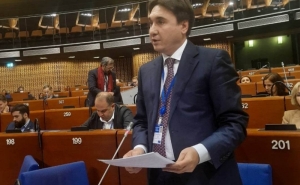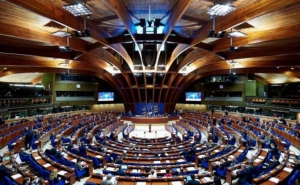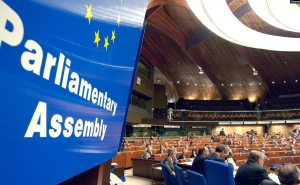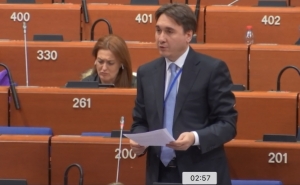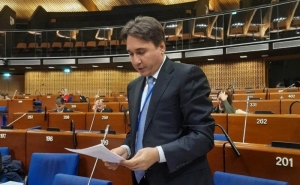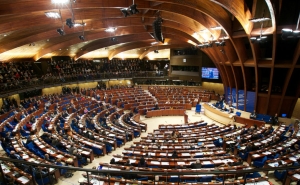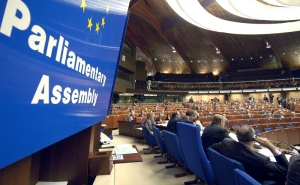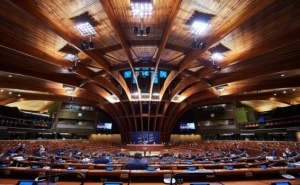 Anti-Armenian Draft Resolutions Contradict the Principles Declared by PACE
Anti-Armenian Draft Resolutions Contradict the Principles Declared by PACE
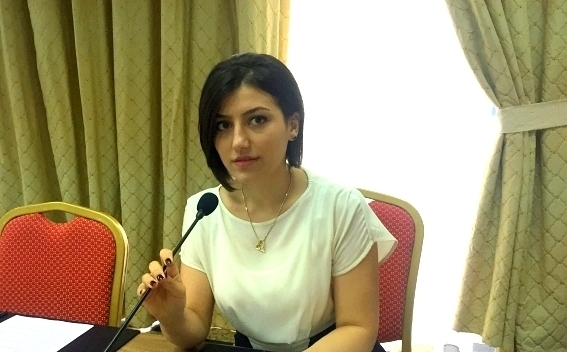
The draft resolutions by Robert Walter and Milica Marković, basically, are an attempt to transfer the question of Karabakh conflict to another platform. This time that platform is the Parliamentary Assembly of the Council of Europe (PACE). However, these Parliamentarians, who serve the interests of a third country do not even realize that such an ineffective and destructive approach contradicts the principles declared by the Assembly.
The abovementioned delegates forget that in 2001, when Azerbaijan and Armenia joined the Council of Europe, they pledged to use only peaceful means to solve the Karabakh conflict. In its 221 (2000) and 222 (2000) Conclusions PACE indicated that "the accession of Armenia and Azerbaijan could assist to establish an atmosphere of trust that is essential for the resolution of Karabakh conflict." But now instead of initiatives aimed at building trust among the conflicting sides, PACE winter session agenda includes draft resolutions that are distorting the reality. Moreover, offering, as Walter puts it, "the withdrawal of Armenian armed forces and other irregular armed forces from Nagorno-Karabakh and the other occupied territories of Azerbaijan, the establishment of full sovereignty of Azerbaijan in these territories", the British deputy completely distorts the obligations that Armenia and Azerbaija assumed when joining the Council of Europe in January 2001, as neither those Parliamentarians, nor PACE or other organization can ensure that it would not lead to a new escalation of the conflict.
On the one hand, this kind of draft resolutions can no way contribute to the establishment of the atmosphere of confidence. The main function of PACE in such situation should be the support in developing confidence-building measures among the conflicting sides, as well as in the whole region.
The issue was raised by Armenia during its accession to the Council of Europe. In particular, in 1999 the Speaker of the National Assembly of Armenia Khosrov Haroutounyan came up with an initiative for establishing a parliamentary cooperation of South Caucasian countries under the auspices of PACE. On March 15, 1999, the Speakers of the Parliaments of Armenia, Azerbaijan and Georgia in Strasbourg adopted a joint declaration, announcing the establishment of a dialogue at parliamentary level. South Caucasian republics were hopeful that this format, to be created under the auspices of PACE, would help in developing regional cooperation and creating an atmosphere of confidence. By joining the Council of Europe, the South Caucasian republics wanted to see CoE’s support for eliminating the atmosphere of hatred and building a lasting peace. Meanwhile, the discussion of political biased reports can no way serve this purpose.
On the other hand, in its documents PACE has repeatedly stressed that "the Parliamentary Assembly considers that the OSCE Minsk Group is the most optimum framework for negotiating a peaceful settlement to this conflict." From this point of view the transfer of the question of Karabakh conflict to another platform does not comply with the PACE principles and threatens to disrupt the efforts of the OSCE Minsk Group. This fact was also emphasized in the OSCE Minsk Group Co-Chairs statements on November 12 and January 22.
These draft resolutions threaten to further destabilize the situation in the whole South Caucasus. PACE should realize this danger, as well.
Other materials on this subject
- Russian forces have clearly failed in their duties: senators press Biden Administration to break Azerbaijan’s blockade The United States cannot stand aside while the Aliyev regime callously threatens the lives of Nagorno-Karabakh’s citizens, and must hold Azerbaijan to account for blocking a civilian population’s access...
- US calls for the full restoration of free movement through the Lachin Corridor "We remain concerned about impeded access to the Lachin Corridor and the humanitarian implications of this situation. This sets back the peace process and undermines international confidence. We call for...
- Azerbaijani forces violate the ceasefire in Artsakh The ceasefire violation was reported to the command of the Russian peacekeeping troops.
- Azerbaijani units violate ceasefire in several directions, Artsakh’s Defense Ministry says The Armenian side has no losses. The incidents of ceasefire violations were reported to the command of the Russian peacekeeping troops.
- Russian Diplomat Reassures Armenians Over Corridor In Karabakh "The parties are in direct contact, and I assure you that the peacekeepers will not move a single centimeter until there is a new corridor," Seleznyov said.
-
 17:08
17:08The regular session of the Anti-corruption Policy Council takes place in Jermuk
-
 15:05
15:05The Prime Minister sends congratulatory messages to the supreme leader of Iran and the President of Iran
-
 11:11
11:11Armenia sends earthquake aid to Turkey
-
 10:43
10:43Commemoration of the Pontiff St. Sahak Partev
-
 09:16
09:16Some roads are closed and difficult to pass in Armenia
-
 19:55
19:55Phone conversation of the Foreign Minister of Armenia with the U.S. Assistant Secretary of State for European and Eurasian Affairs
-
 18:30
18:30Prime Minister Pashinyan and President Khachaturyan meet
-
 18:20
18:20Ararat Mirzoyan with Co-Chairman of the OSCE Minsk Group of France Brice Roquefeuil
-
 17:01
17:01Humans could land on Mars within 10 years, Musk predicts
-
 16:45
16:45France, US urge 'immediate' end to Nagorno Karabakh blockade
-
 16:01
16:01Blockaded Nagorno Karabakh launches fundraiser to support quake-hit Syria
-
 15:59
15:59Earthquake death toll in Turkey rises to 18,342
-
 15:43
15:43Ararat Mirzoyan Held a Telephone Conversation with Sergey Lavrov
-
 15:06
15:06French president rules out fighter jet supplies to Ukraine in near future
-
 14:47
14:475 Day Weather Forecast in Armenia
-
 14:44
14:44President Vahagn Khachaturyan wrote a note in the book of condolences opened in the Embassy of Syria in Armenia
-
 14:20
14:20Azerbaijan’s provocations impede establishment of peace and stability – Armenian FM tells Russian Co-Chair of OSCE MG
-
 12:57
12:57France representation to OSCE: Paris calls on Azerbaijan to restore freedom of movement through Lachin corridor
-
 11:40
11:40Command of Kosovo forces highly appreciated preparation of Armenian peacekeepers
-
 10:16
10:16The United States withdrew from sanctions against Syria for six months the provision of assistance after the earthquake
day
week
month
Humidity: %
Wind: km/h


